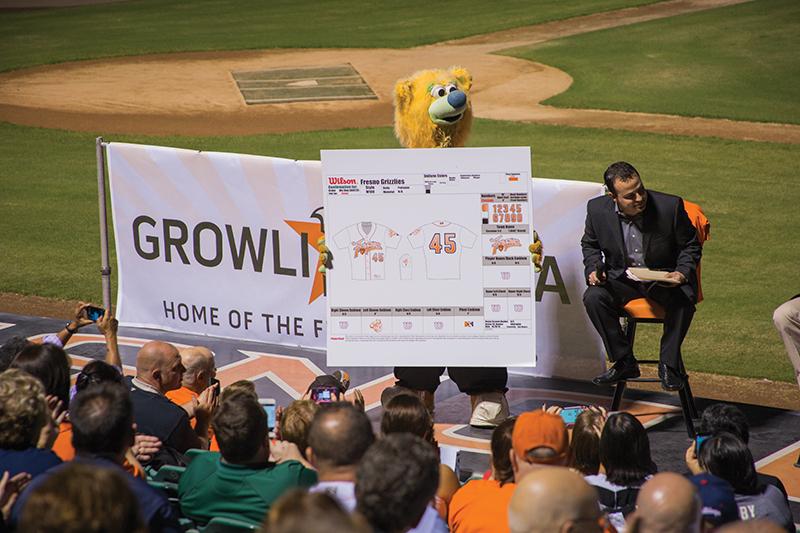
If there’s one thing the Houston Astros want the city of Fresno to know, it’s that they mean business.
And for fans of a team that lost affiliation with a club that has reached the World Series three times in five years, it should be a consolation.
When the Giants signed a deal with Sacramento — a move that was expected despite being against the wishes of the Fresno faithful — the question was whether or not the next team would add relevance.
Remember, the Astros haven’t been exactly Giants-esque the past few years. And they’re 1,579 more miles away.
Why Fresno?
The city of Fresno is known for its hot, dry summers, when temperatures would hover in the triple digits.
For Reid Ryan, Astros president of baseball operations? Not a problem.
“The weather here is great,” he said. “It’s hot — we’re used to being hot. You’re not going to get a lot of rainouts here.
“So, when you look at where we’re going to be at in the country — now being in the AL West, whether it is Seattle, Oakland or Anaheim — we feel like we’ll be able to get somebody there to help us out.”
Drawing this parallel allowed the Astros’ affiliation with the Grizzlies more sensible; why wouldn’t a team want to stick around the same climate?
Then, the next drawback was brought up: the lack of a direct flight from Fresno to Houston. Again, no harm, no foul.
“We flew in last night through L.A.,” Ryan said. “I think, going back, we’ll go through Denver and give that a try. Logistics is the business our owners are in, so we’ll know we’ll be able to get people where we need them.”
Either way, Ryan pointed out similarities between Houston and Fresno. Although, on the surface, there seemed to not be any. For begrudged Giants fans, it looked too perfect: California, the fanbase, the color orange — how could a team in the central United States top that?
And to answer that question, numbers are brought into the conversation.
New affiliation brings improvement
See, there’s a generalization in baseball: the worst teams in the league have a solid foundation in minor league baseball. The best ones, well, it depends on how management controls the squad.
At the major-league level since moving to the American League in 2013, the Astros have finished 121-203, a .373 win percentage. Both seasons ended with the club in the bottom two of the standings (it was spared another last-place finish thanks to its neighbor to the north, the Texas Rangers).
The Oklahoma City RedHawks, the former AAA afiliate of the Astros, finished the last two years 156-132. The Grizzlies are nearly the inverse: 136-151. And let’s not forget that the RedHawks finished first in their division in 2013 (82-62).
Statistically speaking, Oklahoma City finished higher than Fresno in batting (fourth place to eleventh), pitching (fourth to seventh), and fielding (third-place tie to 12th-place tie). The only stat that favors the former Grizzlies club is home runs (139-114); but with the RedHawks batting 13 points higher, it shows a more conservative game play.
With the major leagues now in the World Series, it’s a good time to talk postseason: the RedHawks have made the playoffs once in their affiliation with the Astros (dating back to 2011). Since 1998, a club connected with the Astros (New Orleans Zephyrs from 1997-2004, Round Rock Express from 2005-2010) made the playoffs two times.
So, three playoff appearances in 17 seasons? It doesn’t sound like a lot, but it is still more than the Grizzlies in that span: a big zero.
And let’s talk about the leadership: since 2011, RedHawks manager Tony DiFrancesco has won 52 percent of his games (263-245). Bob Mariano, Fresno’s man at the helm, is three points lower (210-221 or 49 percent).
If one wants to bring winning baseball to Fresno, then the Grizzlies are going in the right direction. Besides, with such mediocre attendance during the Giants-affiliated days, it should bring more hype to the club, right?
It’s time for a new era in Fresno baseball. The new philosophy for the Grizzlies: create a winning environment.
“If you just look at the track record, it speaks for itself,” said Allen Rowin, Astros assistant director of player development. “The [Lancaster JetHawks, Astros’ Single-A club] who won the championship are the same group of guys who were winning in the Quad Cities. And before that, there were guys who were winning in the Tri-Cities.
“Creating a winning environment in the minor leagues is going to be conducive to development and the future of winning.”




